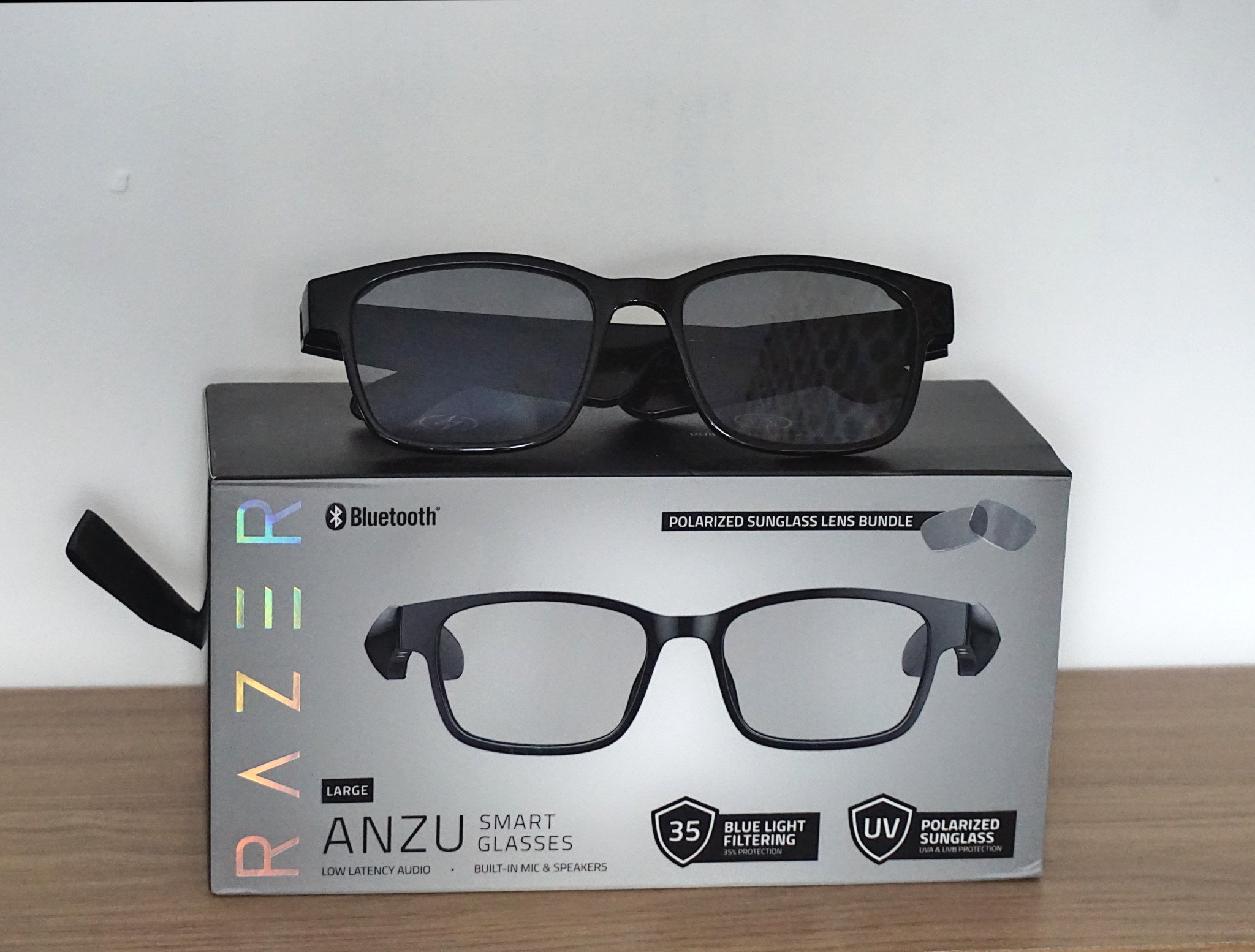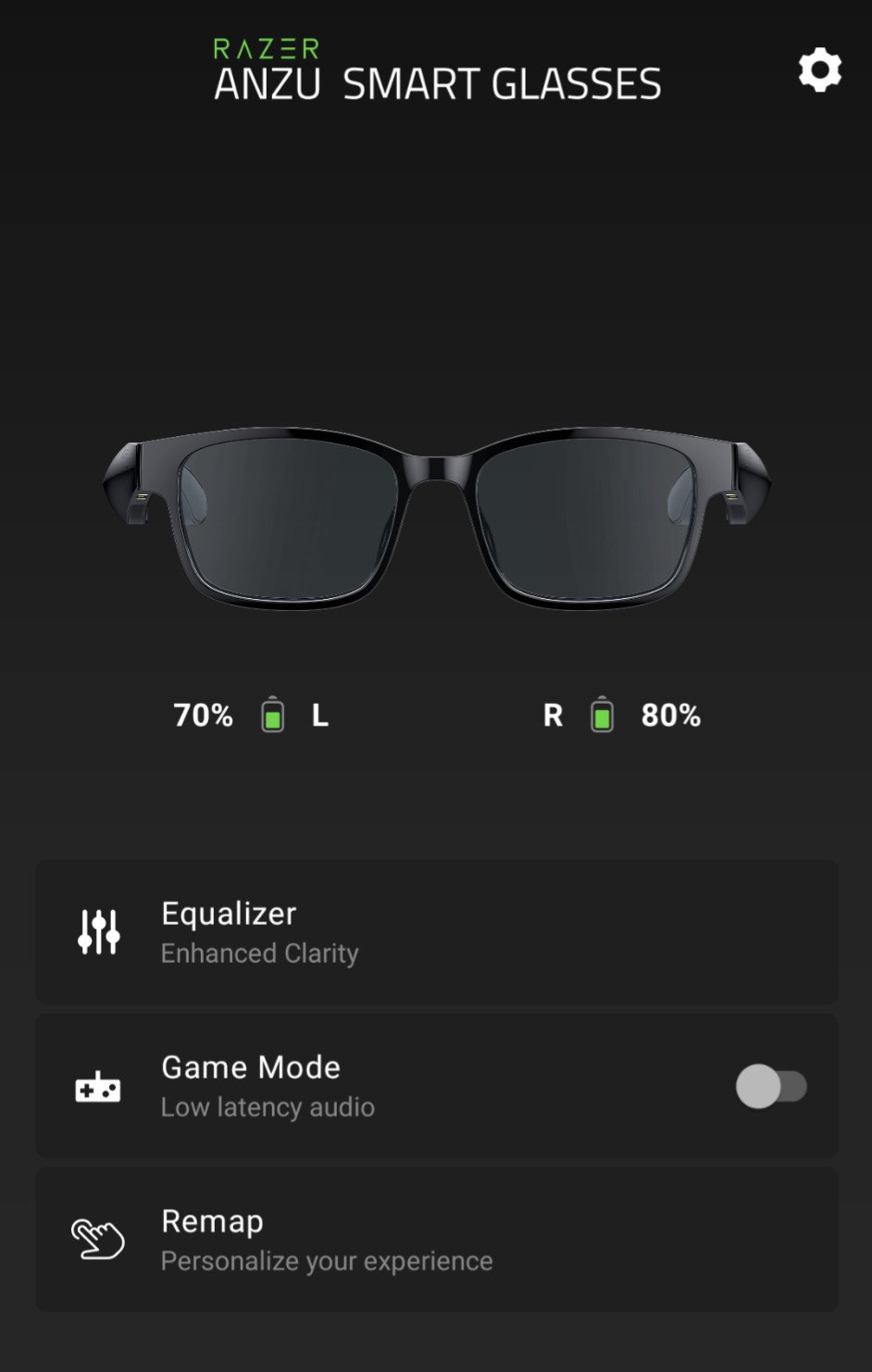Razer is best known for gaming, but it has dabbled plenty in recent times away from its core product base. There's the Razer Book 13, for example, a laptop for normal people, a suite of office-targeted accessories, and the mad-looking Project Hazel face mask.
The Razer Anzu is one such product. Gamers can happily use this pair of smart glasses, but they're just as attractive and useful to someone who has no idea what Razer usually does.
But do you even really need smart glasses? Arguably, no, and the Razer Anzu is very much a Gen 1 product, but to the right person, certainly useful. And fun.
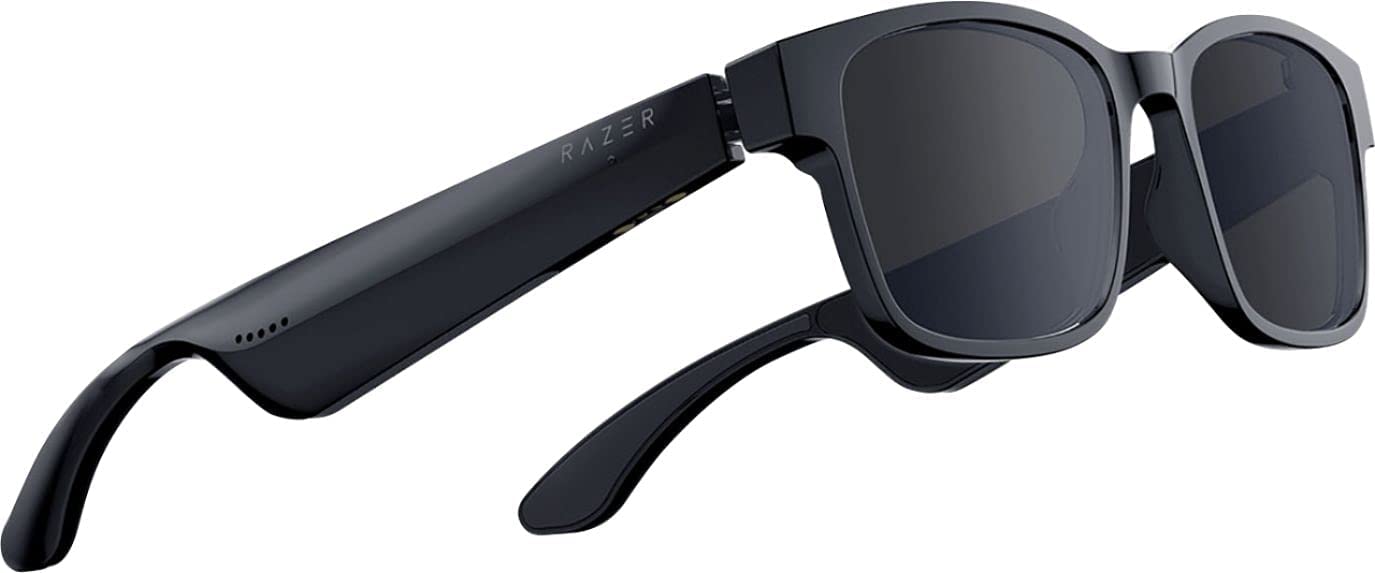
Bottom line: A good pair of blue light-filtering/polarizing glasses with discreet, clear audio capabilities. But undoubtedly with niche appeal and a fairly hefty price tag.
Pros
- Good blue light filtering
- Good polarized filters for use outdoors
- Great volume
- Comfortable
- Decent battery life
Cons
- Swapping lenses is a bit of a pain
- Awkward pairing process on mobile
- Quite pricey
- Touch controls are fiddly
Razer Anzu: Price and availability
The Razer Anzu is available now with a list price of $200. You can find it at the Razer online store along with official Razer resellers such as Amazon and Best Buy.
Razer Anzu: What you'll like
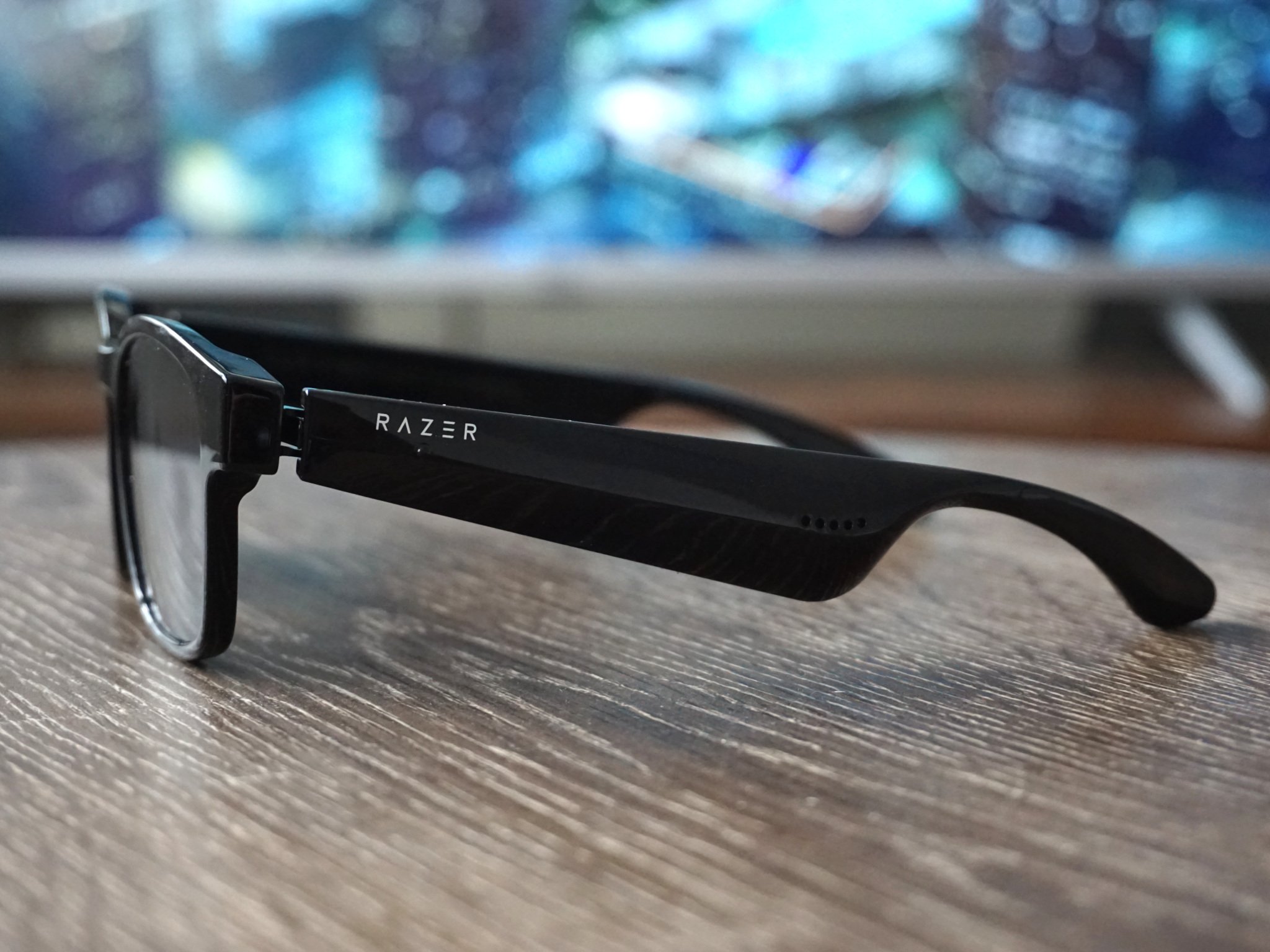
The Razer Anzu is a curious product. On one hand, it's another pair of blue light-filtering computer glasses, or even a good pair of polarized sunglasses. But then you pair it to your phone, and it starts talking to you. You can hear phone calls, music, podcasts, anything you might normally hear from your phone speaker or a pair of headphones.
But here's the thing. As someone who wears both blue light-filtering glasses and a pair of headphones most of the day, the Anzu has been a joyous replacement. More comfortable to wear than earbuds yet just as convenient while I work, and giving me the fatigue-fighting blue light filtering that my tired old eyes crave during a day in front of the PC.
On that front, the Razer Anzu has become one of my most used and favorite products during my time with it so far. The lenses are clear with no tinting, so they're comfortable to use and don't completely distort the colors of whatever you're looking at. The included polarized lenses for wearing outdoors are equally impressive. I normally wear Ray-Bans and the lenses on the Anzu aren't quite as dark, but still cut out enough sunlight to be comfortable. I have particularly sensitive eyes outdoors and wear sunglasses almost every day, and the Anzu has fared well.
All the latest news, reviews, and guides for Windows and Xbox diehards.

There's not much else to say about the Anzu as a pair of glasses, aside from the design and weight. There are two different frame designs, one round, one squarer, and different sizes for different-sized heads. There's no prescription option, though conceivably that could always be an option on future designs.
All of the electronics are built into the arms, so the frames themselves look entirely normal. To any passerby, you're just wearing a normal pair of glasses. Between the frames and the piece that hooks over your ear is significantly larger than a regular pair of glasses, though, as this is where the batteries and other bits of tech live. They're chunky, but when on your head don't stand out as being obnoxiously large. The Razer logo is probably more of a giveaway that these aren't just normal glasses.
The speakers on the Razer Anzu live at the very back of these chunky portions. They look incredibly tiny, and they are, but the volume is astonishing. What's even more astonishing is that while you can hear your phone calls, music, podcasts, etc., clear as day, the world around you is completely oblivious. I sat having breakfast listening to a podcast while in a cafe and not a single person could hear the sounds going into my ears. The same can't be said for everyone sat in earshot of someone having a ridiculously loud speakerphone conversation on an adjacent table, however.
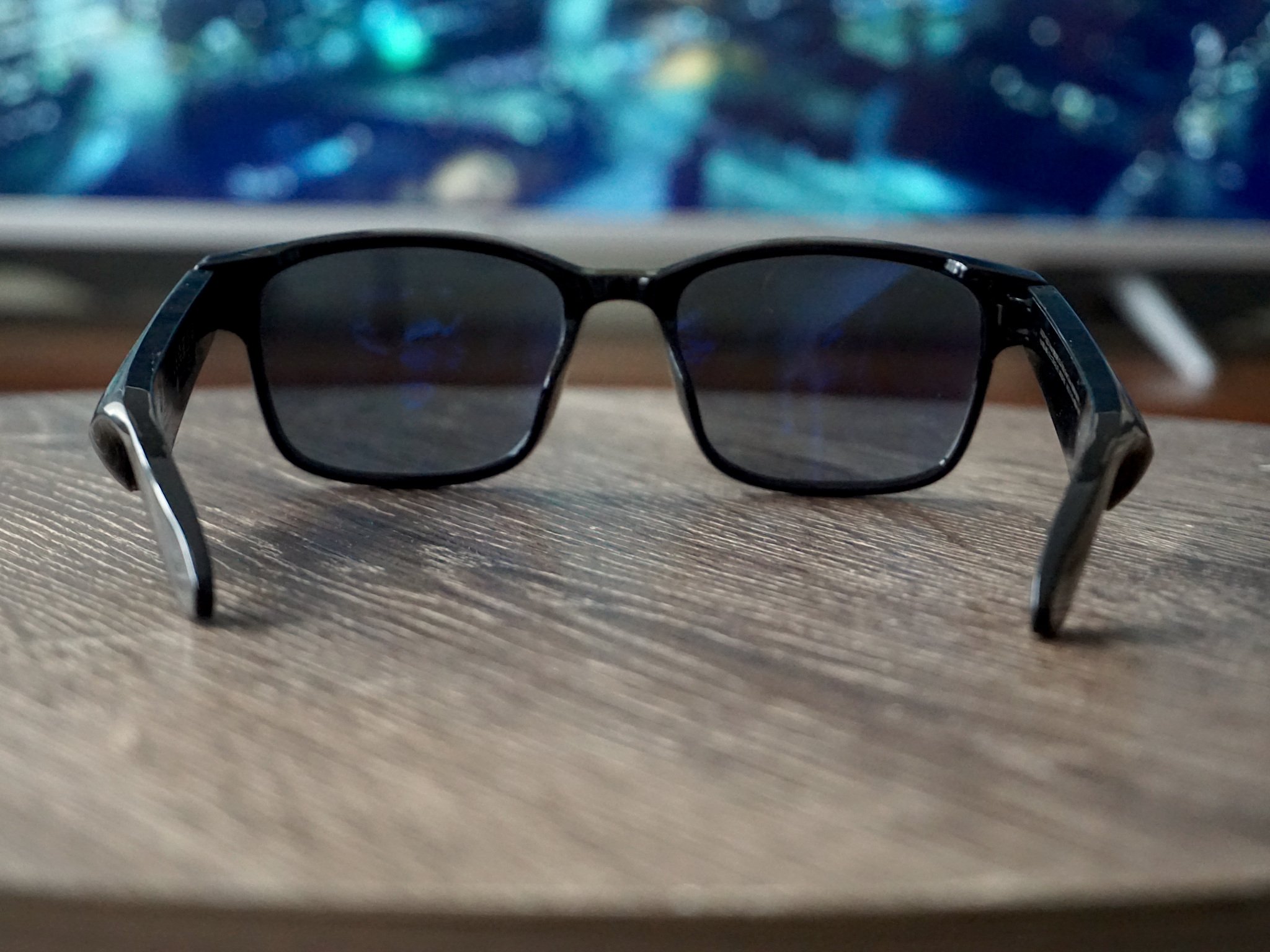
If you listen really closely and you have the Anzu cranked up to full, you'll hear something. But you have to be right up close to the glasses, so unless you're in a dead silent room, nobody will ever notice a thing. Walking down the street you can hear not only your personal audio but everything else happening in the world around you like you wouldn't get with most headphones. Sure, you're not getting audiophile quality (not even close) so it's not the best choice for music. But for phone calls on the move and podcasts, in particular, the Anzu has been incredibly useful.
The Anzu also boasts low latency audio and has a special gamer mode you can enable in the app for it. Gamers hate latency of any kind, and while I can't measure the results myself, it's there and it's a reminder of Razer's pedigree. Even when gamers aren't necessarily the first priority, they're still being cared for.
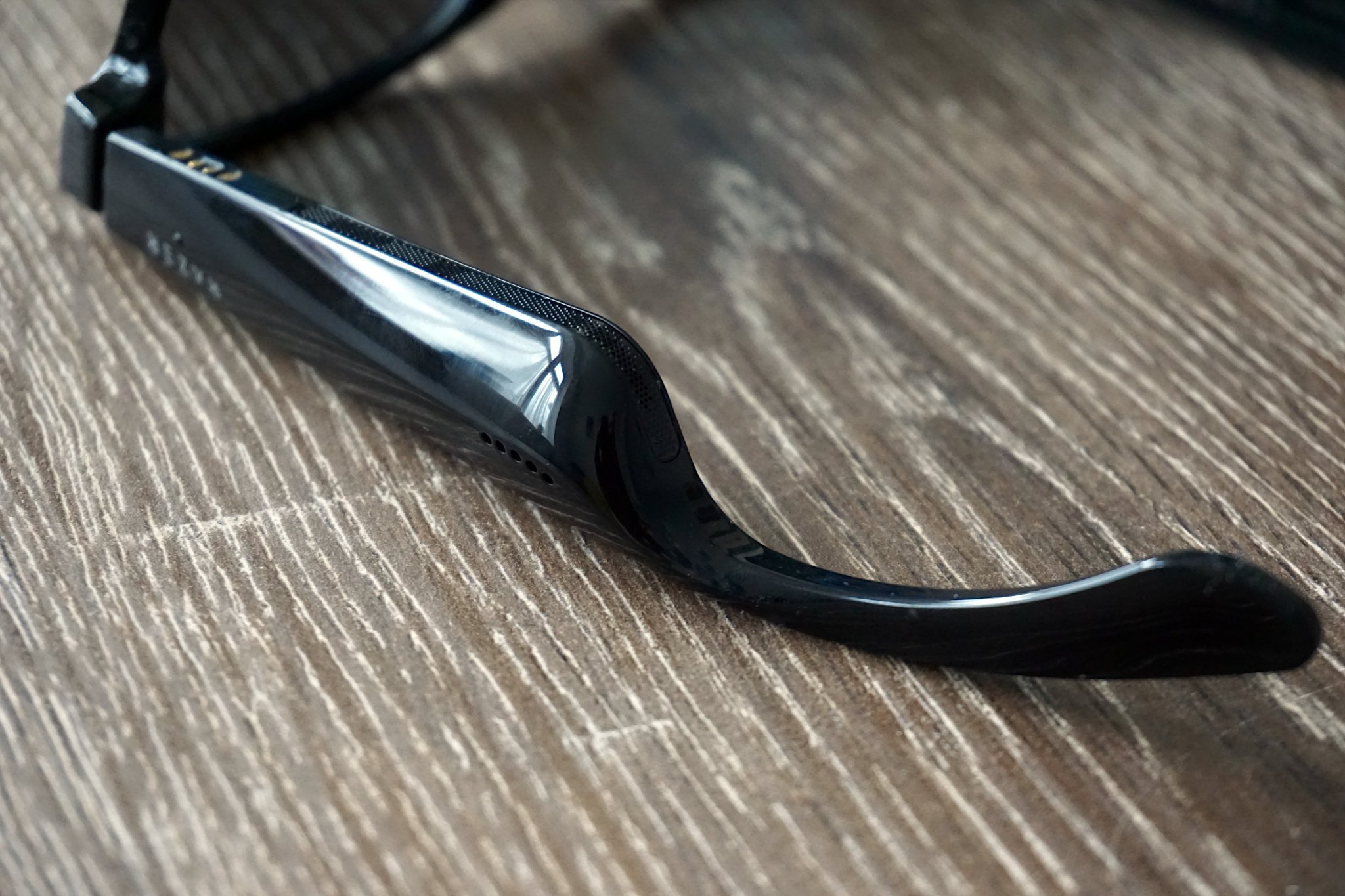
Battery life is decent, too. If you're a heavy user, like me, sitting in front of a PC listening to a podcast all day, you'll have to charge up after a few hours. But if you use the Anzu more as I expect Razer designed them to be used, for occasional audio use, getting a day or two between charges is easy enough. The cable is first-party though, so don't lose it. It has a pair of magnetic chargers that clip to each arm on the glasses. Easy to use, but hard to replace.
Razer also deserves a shoutout for the included carry case. It's large enough to get your glasses in, along with a cleaning cloth and the other set of lenses, and has a block inside to rest the nose bridge on when you pack them away. A hard case would be the best protection, but this is a close second since the glasses won't be moving about.
Razer Anzu: What you won't like
As good as the Razer Anzu is as a pair of glasses and a convenient audio partner, it's far from perfect. For starters, pairing them to a mobile device is a bit of a pain. Razer has a companion app for iOS and Android that's there to ensure you have full control, can update firmware, and so on. But connecting to the app, on Android at least, doesn't also automatically connect the glasses to your phone for audio use.
I speak from experience.
So either connect the Anzu to your phone's Bluetooth in the normal, connecting things to a phone's Bluetooth way as well as the Razer app. Annoying, not the end of the world, but not the sort of setup process you would expect.
The Razer app is important to help you out with the touch controls, too. On the Anzu, you have a little dot on the arms to help you locate the touchpoint, but in my experience, they're a little fiddly to operate. The out of the box settings are also different to virtually any other touch-enabled headphones in terms of features like skipping tracks. It's also frustrating at times to be touching your glasses to activate your phone's voice assistant and you don't get it right. Jabbing the side of your face a lot in public doesn't look weird at all.
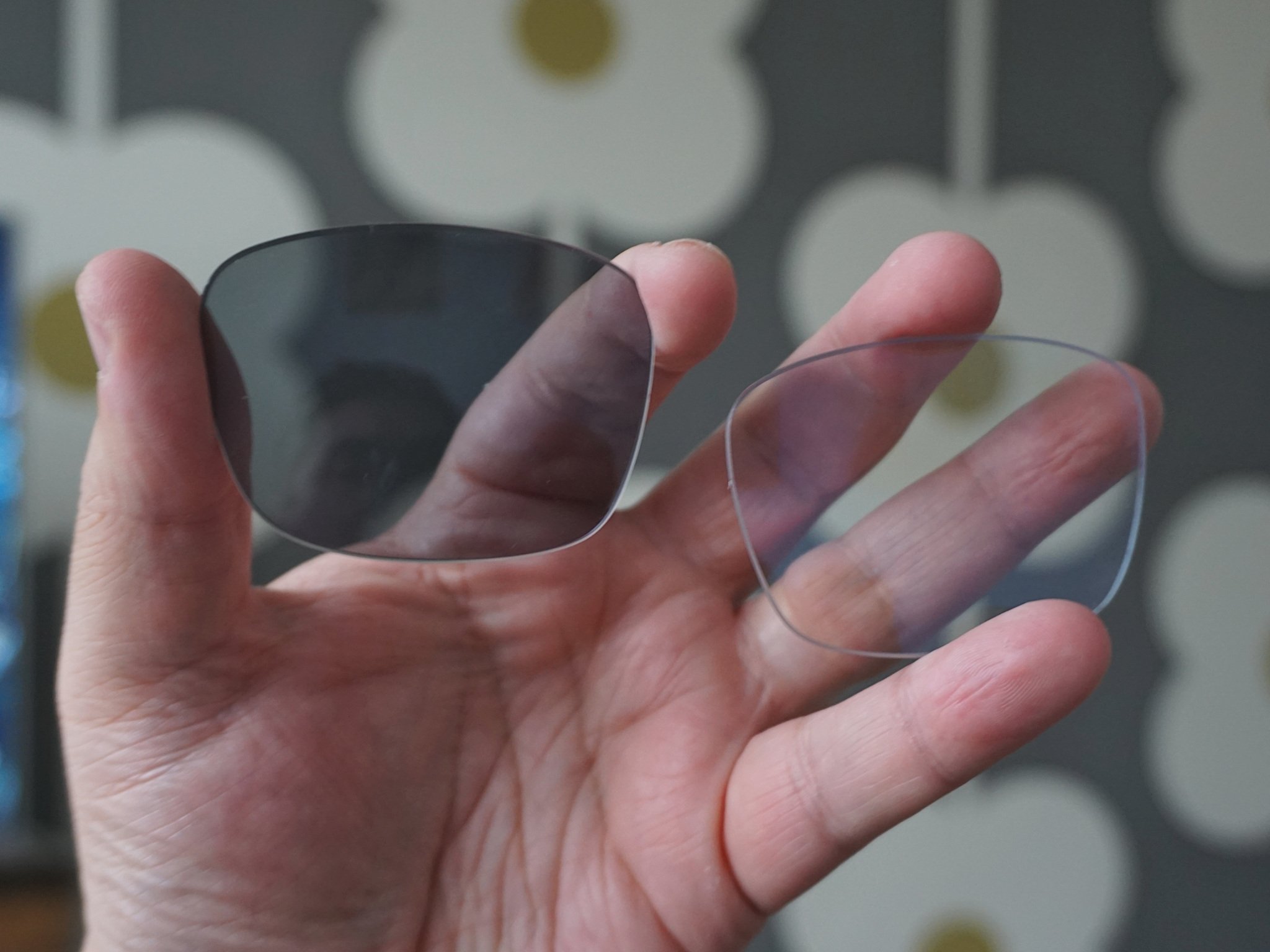
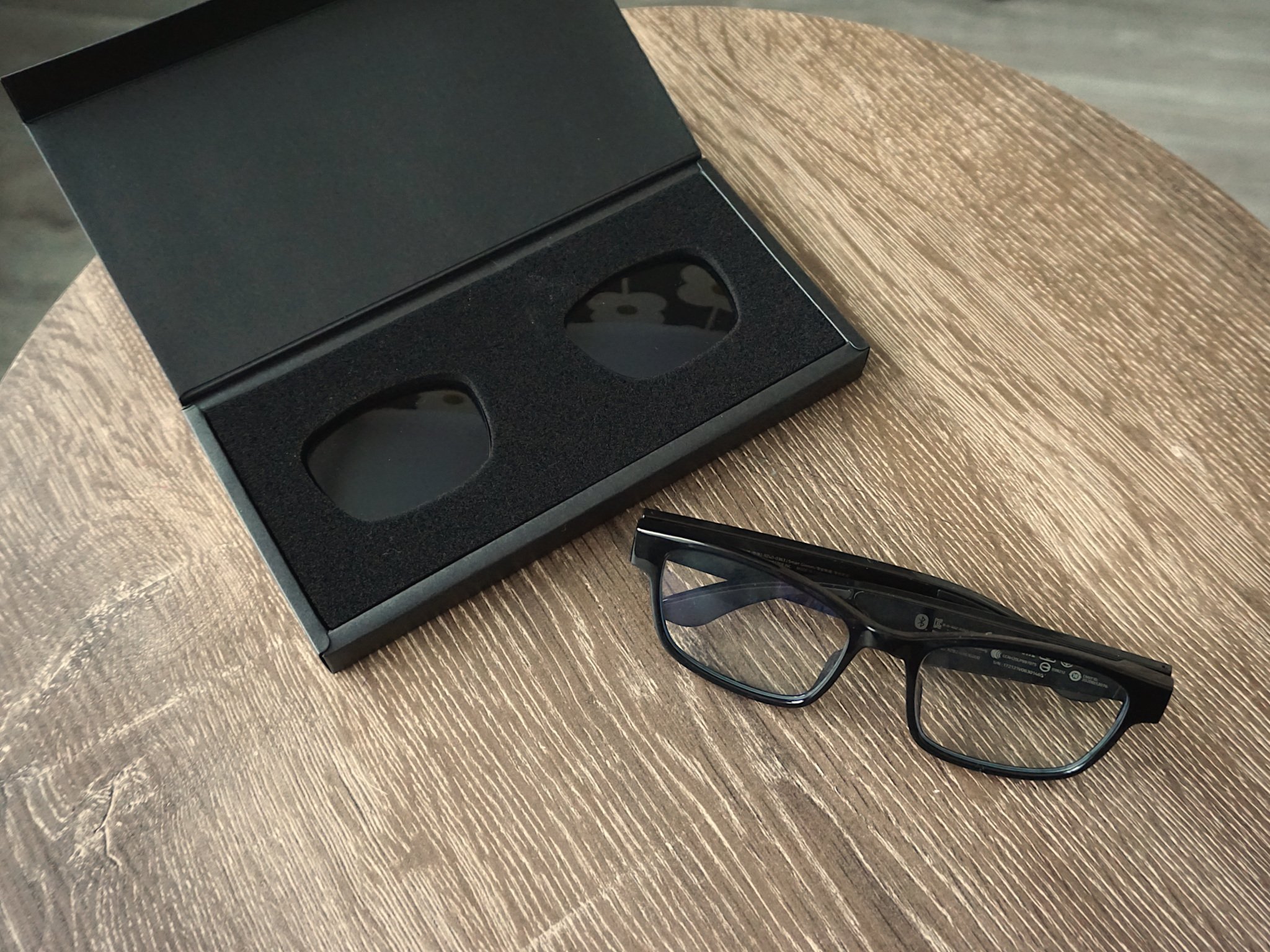
Probably the biggest pain point of living with the Anzu though is swapping the lenses. I'm not sure there's a better way, I'm certainly no designer, but swapping between the blue light and the sunglasses regularly just makes me feel like something is going to scratch badly or break.
The lenses are easy enough to pop out, but require a mild amount of precision and little firm pushing to put back in. Fortunately, because the polarized lenses aren't super dark, you can actually get away with wearing them indoors when you're out and about. Something I definitely recommend.
This is also a fairly pricey product. List price is $200, which is a lot, and it takes away any impulse buy. It's a good product, but it's not something many will buy on a whim. You need to know you're going to use them to get the value.
Razer Anzu: Should you buy it?

You should buy this if ...
- You're looking for good blue light-filtering glasses
- You're looking for an alternative to headphones for light audio use and hands-free phone calls
- The idea of listening to tunes or podcasts from your sunglasses appeals to you
You shouldn't buy this if ...
- The price puts you off
- You're in need of a prescription lens
- You want high-quality audio
The Razer Anzu is a good, high-quality product, but it's definitely what you'd call a Gen 1 and has niche appeal. Some would see it as a gimmick, and they wouldn't be entirely wrong, but it combines three products well enough to be truly useful to the right person.
I wear headphones almost all day, I wear blue light glasses almost all day, and wear sunglasses without fail when I go outside. For me, the Razer Anzu has been a genuinely useful product that has made my daily life a little more comfortable. I struggle with earbuds that fit properly and they cause discomfort after a couple of hours, over-ear headphones aren't good (especially in the British heatwave we're enduring), and I always wear sunglasses outdoors.
I've been using the Razer Anzu every day and genuinely love it as a product. But equally, I find it hard to recommend to everyone, because the simple truth is it just isn't the right product for all. If you can justify the price, though, it's a solid investment. Keep your phone in your pocket, keep your audio to yourself and be extremely comfortable in the process. The Razer Anzu is a fun product to have in your life.

Richard Devine is the Managing Editor at Windows Central with over a decade of experience. A former Project Manager and long-term tech addict, he joined Mobile Nations in 2011 and has been found in the past on Android Central as well as Windows Central. Currently, you'll find him steering the site's coverage of all manner of PC hardware and reviews. Find him on Mastodon at mstdn.social/@richdevine
